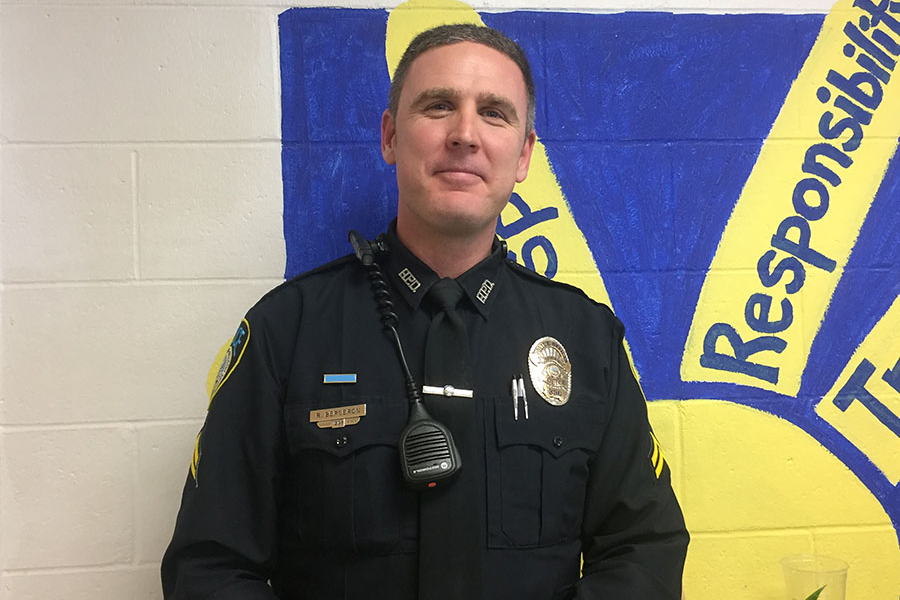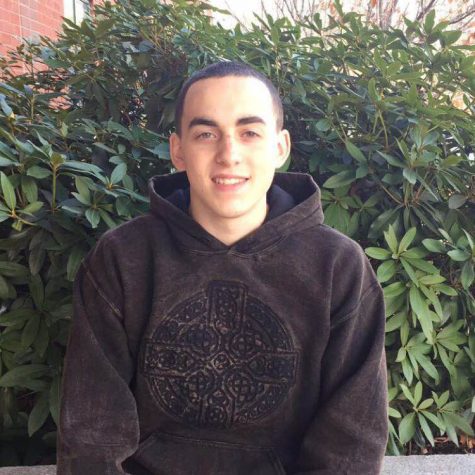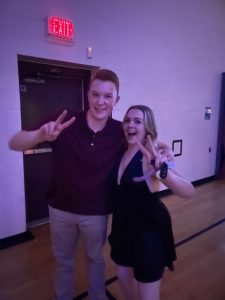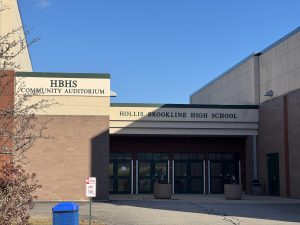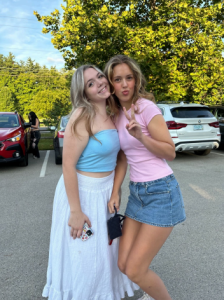Becoming Blue
Officer Bergeron has served the HB community for many years.
April 17, 2017
When I was a kid, I and many others dreamt of becoming police officers, and now that we are faced with the challenge of deciding our future professions, our dreams may become a reality. Many people often think about the kinds of experiences they’d have, the different jobs you might do. But not many people have thought about the process that you would have to go through in order to become an officer of the law. Through my own experiences, the experiences of current police officers, and those of retired officers, I’ve come up with with a list of activities you might want to get involved with in high school and college as well as the process that I would need to complete in order to become a police officer.
As a high school student, my options are somewhat limited in terms of what I can accomplish towards my goal of becoming an officer, besides the obvious good grades and lack of a criminal record. Something that I’ve had the privilege of doing (which looks really good on a resumé), is becoming a police explorer. As an explorer, you must attend classes every other week which often pertain to different experiences that one must learn as a police officer. These classes include lessons on how to properly handcuff a suspect, how to correctly search and clear buildings, and what to do when you pull someone over. Besides attending classes, explorers are required to give back to their communities in the form of volunteering. The kinds of volunteering jobs that I’ve participated in range from running traffic control to selling tickets for an event– whatever we can do to help.
Another event to consider taking part in is the Police Cadet Academy. This is a week-long course where you live on a college campus and undergo lots of physical training, learn drills and ceremonies (marching, saluting, etc.), and also take several classes taught by active duty police officers and detectives. By completing this academy you learn self-discipline and display your willingness to follow orders, and also get to experience the sense of brotherhood that comes with it.
These experiences are good for your resumé, but are also valuable life lessons. However, they are not required in order to get hired. Our very own Officer Bergeron said that “[he] didn’t do any sort of activities to become a police officer in High School. [His] dad was an officer so [he] spent a lot of time at the station getting to know everyone.” Aside from activities like the explorers and the academy, it’s also important to just get to know police officers. You get to see the kind of work that they have to do and it gets your name noticed. It doesn’t hurt to have several officers talking about how good a person you are.
Besides the requirement to have at least a high school diploma, it’s very important to either have college or military experience. “I spent 2 years in community college in order to save money, and then went to Westfield University where I got my bachelor’s degree,” said Officer Bergeron. “After that, I went to Western New England University to get my master’s degree.” Getting that experience isn’t necessarily required, but it will definitely put you at the top of the list in terms of possible future police officers.
If you are considered to be one of the better applicants you will undergo a written test followed by a physical test. After you’ve completed those you must stand in front of an oral board consisting of active duty officers. Afterwards, it’s time for your interview with the Police Chief. If you have success in their interview, you are given a conditional offer. Should you accept the offer, you must attend the Police Academy.
The length of the Academy depends on the state in which you are hired. These academies range from 6-8 weeks to 6 months. Once you’ve finished the academy you must now report for your 3 months of on the job, training with several different field training officers. Once your 3 months is up, you have to spend one more week with your first FTO where they will decide if you are ready to continue on your own. Once you get their recommendation and are officially on your own you must complete your year of probationary period. This year of probation is for the department to decide if you are a good fit for them and if you seem to know what you’re doing. After that first year is over, you are officially a police officer.
“Being a police officer was one of the best experiences I’ve ever had,” said retired police officer Brendhan Harris. Its with these stories and experiences that I hope to one day wear blue.



